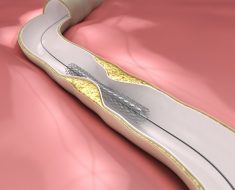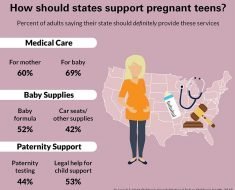Having healthy skin isn’t all about what you eat. And supplements and vitamins aren’t necessarily the answer either.

Add probiotics to your diet, cut out meat, avoid gluten, try fish oil, take biotin.
These are just a few of the many skin care recommendations circulating around the web these days.
And while diet does have a lot to do with skin health, most of the information posted on blogs and social media isn’t scientifically sound and, experts say, should be taken with a grain of salt.
As it turns out, a lot of these websites are sponsored by companies looking to sell products and are part of a larger marketing effort.
In addition, a lot of the dietary changes individuals are sharing are purely anecdotal, and what works for one person may not work for another.
“People looking to improve their skin health may think that changing their diet is the answer, but a dermatologist will tell you that’s not necessarily the case,” Dr. Rajani Katta, FAAD, a board-certified dermatologist and a clinical professor of dermatology at McGovern Medical School at the University of Texas Health Science Center at Houston, said in a recent report published by the American Academy of Dermatology.
According to Katta, one of the biggest misconceptions is that food allergies have a strong connection to certain skin conditions. In reality, while some food allergies can affect the skin, most have little to do with skin disease.
Take gluten, for example, which is commonly blamed for skin inflammation.
A lot of individuals with eczema or psoriasis will eliminate gluten from their diets to help improve their skin condition. However, only those who suffer from an intolerance or hypersensitivity to gluten will see a significant change.
Elimination diets are more likely to hurt
As a result of this misconception, more people are trying elimination diets — such as veganism, the Keto diet, or even a cleanse — in an effort to improve their skin.
Many dermatologists advise against this, though, as elimination diets can cause people to miss out on essential vitamins, minerals, and amino acids. In fact, previous studies have indicated that vitamin deficiencies adversely affect the growth of your hair, skin, and nails.
“Protein and vitamin B-12 levels are hard to maintain on a strict vegan diet,” Dr. Janet Prystowsky, a board-certified dermatologist and associate professor of dermatology at Mount Sinai Hospital in New York City, said. “Protein deficiency will weaken your skin and other body tissues. B-12 deficiency will cause anemia and neurological problems.”
Additionally, those who become deficient in vitamin C may notice bruising. A vitamin D deficiency may cause painful rashes, Prystowsky added.
In other words, if you’re deficient in a vitamin — which is oftentimes the case with elimination diets — there’s a good chance it will be reflected in your skin.
Supplements aren’t a quick fix either
Elimination diets aren’t the only misguided fad in skin care right now.
Biotin, zinc, and B-12 supplements have been flying off the shelves despite the fact there’s no real benefit to taking a supplement unless you have a diagnosed deficiency or condition that may require them.
“You can’t just pick a supplement up off the shelf and say, ‘This is going to work for me,’” Katta said in the report. “In order for a supplement to be helpful, it needs to be the right supplement taken at the right dose for the right person.”
For one, most of these substances aren’t regulated in the same way as prescription medications. Therefore, some of the health claims listed on the bottle may not be scientifically proven.
Secondly, if taken incorrectly, supplements can be dangerous. Over supplementing can result in toxicity, and certain supplements can have adverse reactions with other medications.
Supplements work best when a board-certified dermatologist determines whether or not your body could benefit from a supplement, and, if so, how to correctly take it.
A healthy diet for a healthy body
While more research is needed to fully debunk the link between diet and certain skin conditions, previous studies have indicated that a healthy, wholesome diet supports not only your skin but also your overall health.
So, instead of eliminating certain food groups from your diet or treating a suspected deficiency with an over-the-counter supplement, work to maintain a healthy, well-balanced diet full of all your required nutrients.
“No one food has every vitamin and mineral you need, so a good rule of thumb is to add a variety of color to your plate,” Prystowsky advised. “A well-balanced diet includes proteins, carbohydrates, vitamins, minerals, and fats.”
Cut down on processed foods and load up on the fruits, vegetables, whole grains, and lean meats.
If you’re considering mixing up your diet for the health of your skin, consult with your doctor or a board-certified dermatologist first.
They’ll be able to provide an accurate assessment of your skin and determine which foods, if any, could stand to be eliminated.
related stories



Source: Read Full Article





